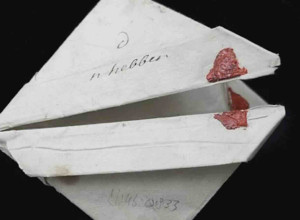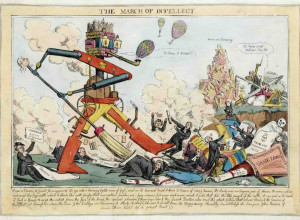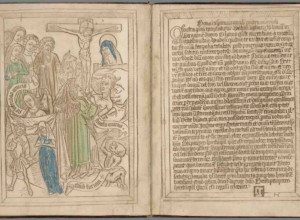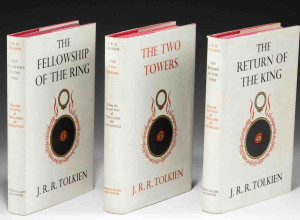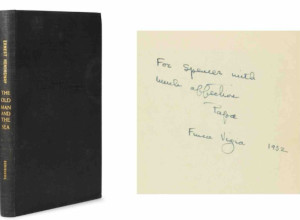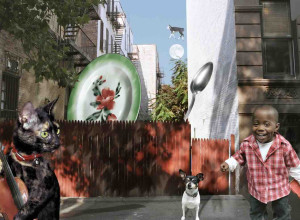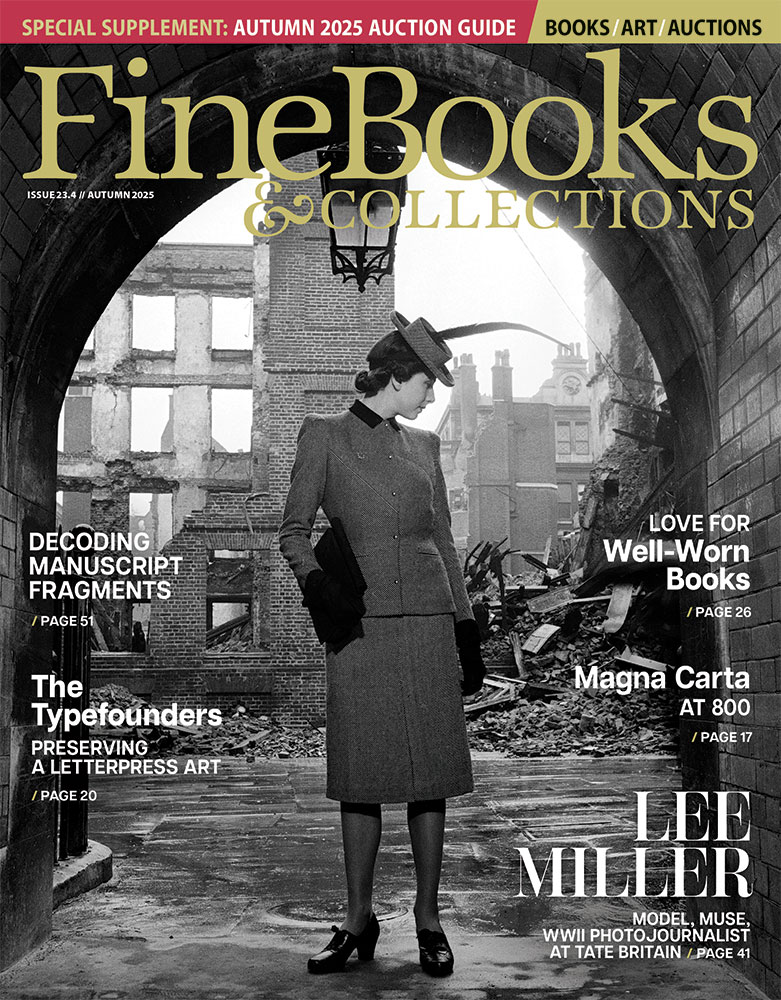July 11, 2010 |
Summer Reading
So July 4th weekend has come and gone, the hot hot weather is finally here (at least in my neck of the woods), and I have spent some time with some beach reading. Beach reading for the literary set, I should append. Beach reading for the collecting set, I might even add.
Two such novels caught my eye this summer. Allegra Goodman's The Cookbook Collector (Dial Press, 2010) just went on sale last week. It's terrific. Goodman h been round the literary circuit before -- her debut was a National Book Award finalist, and her most recent a New York Times bestseller. But this book appeals to the bookish in a whole new way. The main characters are two intelligent twenty-something sisters, Jessamine and Emily. Emily is the CEO of a Silicon Valley start-up, who seems just a little too sweet and ethical for the job. The younger and less ambitious Jess works part-time at Yorick's Used and Rare Books in Berkeley when she's not out trying to save the redwoods. But Jess becomes enamored by a set of rare cookbooks that her boss acquired. With his encouragement, she begins cataloguing the books, finding erotic drawings and poems in the margins that signal the former owner's obsession with an unknown woman. One might think from this description that the novel's plot would focus on this mystery, a la Matthew Pearl, but it is but one element in a grander scheme of loves, losses, and lucidity. Bibliophiles who enjoy novels should not miss it. Where else in modern fiction are you going to read a line of dialogue like this, "You think there's something materialistic about collecting books, but really collectors are the last romantics. We're the only ones who still love books as objects."
The second novel in my proverbial beach bag is The Summer We Read Gatsby (Viking, 2010) by Danielle Ganek. Set in the Hamptons, this novel is about two half-sisters, somewhat estranged and brought together when they inherit a beach cottage called Fool's House (after the Jasper Johns painting). The recently divorced Cassie is back in the United States for one month to settle the estate of her aunt, while her eccentric sister Peck plays socialite. Their aunt, a sometime artist and art collector, told them there was something of "utmost value" to be found in the house, so between parties, dates, and shopping sprees, a secret or two percolates. Cassie thinks the valuable thing might be a Fitzgerald first edition:
"I don't know why, but I had this idea we might find a first-edition Great Gatsby hardcover with a dust jacket. Signed, maybe."
"What would that be worth?" Peck asked, scoffing. "Nothing. Maybe a few grand?"
"Signed?" I reached for the packet of letters and untied the ribbon. "Those things are worth a lot to some people." [Note: Like $180,000 at Bonhams record-breaking auction last year.]
Less intricate than Goodman's novel, Ganek's story is winsome nonetheless. Enjoy!
Two such novels caught my eye this summer. Allegra Goodman's The Cookbook Collector (Dial Press, 2010) just went on sale last week. It's terrific. Goodman h been round the literary circuit before -- her debut was a National Book Award finalist, and her most recent a New York Times bestseller. But this book appeals to the bookish in a whole new way. The main characters are two intelligent twenty-something sisters, Jessamine and Emily. Emily is the CEO of a Silicon Valley start-up, who seems just a little too sweet and ethical for the job. The younger and less ambitious Jess works part-time at Yorick's Used and Rare Books in Berkeley when she's not out trying to save the redwoods. But Jess becomes enamored by a set of rare cookbooks that her boss acquired. With his encouragement, she begins cataloguing the books, finding erotic drawings and poems in the margins that signal the former owner's obsession with an unknown woman. One might think from this description that the novel's plot would focus on this mystery, a la Matthew Pearl, but it is but one element in a grander scheme of loves, losses, and lucidity. Bibliophiles who enjoy novels should not miss it. Where else in modern fiction are you going to read a line of dialogue like this, "You think there's something materialistic about collecting books, but really collectors are the last romantics. We're the only ones who still love books as objects."
The second novel in my proverbial beach bag is The Summer We Read Gatsby (Viking, 2010) by Danielle Ganek. Set in the Hamptons, this novel is about two half-sisters, somewhat estranged and brought together when they inherit a beach cottage called Fool's House (after the Jasper Johns painting). The recently divorced Cassie is back in the United States for one month to settle the estate of her aunt, while her eccentric sister Peck plays socialite. Their aunt, a sometime artist and art collector, told them there was something of "utmost value" to be found in the house, so between parties, dates, and shopping sprees, a secret or two percolates. Cassie thinks the valuable thing might be a Fitzgerald first edition:
"I don't know why, but I had this idea we might find a first-edition Great Gatsby hardcover with a dust jacket. Signed, maybe."
"What would that be worth?" Peck asked, scoffing. "Nothing. Maybe a few grand?"
"Signed?" I reached for the packet of letters and untied the ribbon. "Those things are worth a lot to some people." [Note: Like $180,000 at Bonhams record-breaking auction last year.]
Less intricate than Goodman's novel, Ganek's story is winsome nonetheless. Enjoy!





